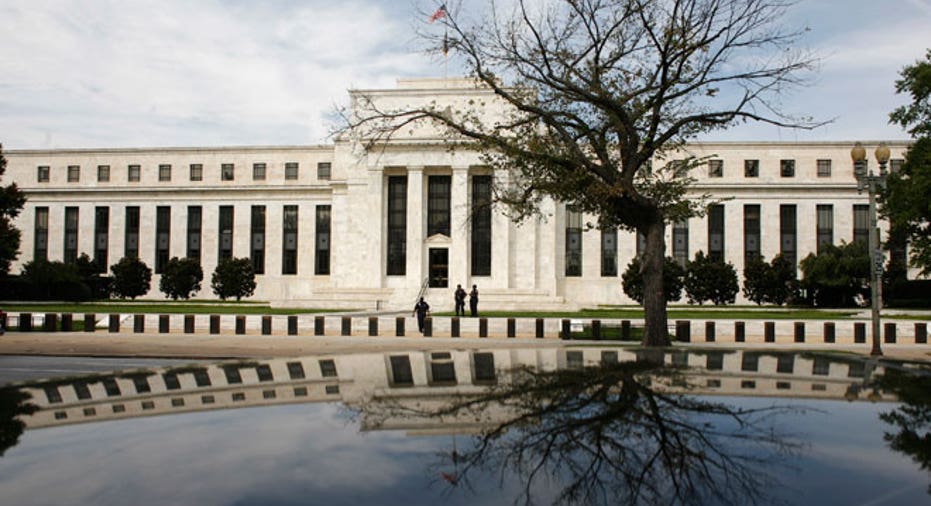How to Play the Fed Taper-Talk Game

Recent hints of possible relaxing of the Federal Reserve's quantitative easing program has roiled global and domestic markets, and investors need to get their portfolios prepared for a possible pulling of the punch bowl.
After years of flooding the market with money from its massive bond-buying program and keeping interest rates at record lows, many experts expect the central bank to start tapering its efforts and start reducing its balance sheet amid signs of a slowly recovering economy.
While most experts didn’t expect policymakers to announce any QE narrowing at Wednesday’s two-day meeting conclusion, Fed chief Ben Bernanke told Congress in his semiannual testimony in May the Fed would start considering it over the next several meetings.
Wall Street didn't like that idea of losing its backstop and the stock has been more volatile ever since. Treasury yields crept above 2% for the first time since March.
“I would expect tapering to come in October -- that gives Bernanke enough time to make sure the economic growth is sustainable and the path forward is legitimate,” says David Joy, chief market strategist at Ameriprise Financial.
Keep in mind any Fed action should mean the economy is doing better -- which is usually good news for the stock market.
“Tapering is a signal the economy is progressing and we no longer need the Fed to act as a back stop,” Joy says.
With bad news meaning good news for Wall Street recently, it can be hard to prepare a portfolio to benefit from Federal Reserve action, but experts say that any move the policymakers make will be gradual, allowing time to evaluate and readjust if necessary.
“You are going to have plenty of time to evaluate the impact of any Fed move and readjust accordingly," says Joy.
Bonds
The first thing investors should do at any sign of potential tapering is to make sure their bond positions are protected in case interest rates rise, Joy says.
“You don’t want anything too sensitive to rising rates. With coupon interest rates so low, make sure your interest rate sensitivity duration is manageable.”
He adds the high-yield sectors are attractive again and that investors have the opportunity to have some “latitude with the quality spectrum of the bonds they invest in.”
In the short term, Michael Block, chief strategist at Rhino Trading Partners, suggests bond holders buy more intermediate-term paper to reduce price risk.
“Buy intelligently in the corporate market and go off yield in some markets," he says. Investors "need to find the opportunities outside Treasuries.”
Lance Roberts, chief strategist at StreetTalk Advisors, says history shows investors can find good opportunities in the bond market if QE starts to wind down.
“I would be buying bonds in the investment-grade space hand over fist,” he says. “When they start tapering off, rates will go down to around 1.5-1.7% in bonds by the end of the year, that’s about an 8-9% return in appreciation based on the durations we are looking at.”
Equities
Investors looking to make a taper play should look toward the financial sector, Joy advises, specifically banks.
“Tapering means an improving economy and that means longer growth prospects and higher net interest margins. Banks with capital markets divisions will see more bond and stock underwriting activity and if the markets can stay at or above this level, it will mean higher fee generation, all good things for a shareholder.”
The tech sector could also see a bounce with less Fed action as both companies and consumers feel comfortable loosening the purse strings.
“Technology is good in an improving market,” Joy explains. “There is likely to be an increase in spending from businesses on software and equipment, they’ve been reluctant to spend the piles of cash they’ve been sitting on, but Fed action might get them to make a move.”
Consumer discretionary stocks should also get a boost because an improving economy leads to higher consumer sentiment, which brings more spending.
“Unemployment has come down and even more importantly, consumer net worth moved to a new all-time high in the second quarter,” says Joy. “That creates a wealth effect and means people will spend more of their income.”
Roberts warns investors to be choosy when picking consumer stocks, saying many of them have become overvalued.
“The problem is, the stocks like Johnson & Johnson and Proctor & Gamble, your normal go-to stocks, became stretched price-wise because of the yield chase during the fiscal cliff selloff at the beginning of the year, which created a weird market dynamic where the should-be leaders became laggards and laggards became leaders.”
Commodities
Joy expects commodities to struggle on any taper talk and advises investors to steer clear.
“If the Fed tapers that means less money orienting and the dollar will be relatively strong and that will push commodity prices lower.”
Roberts says he would stay away from the gold market, especially since inflation concerns remain subdued with the taper talk. “The trend in gold is horribly broken right now; it’s like trying to buy stocks in the middle of a market crash.”



















